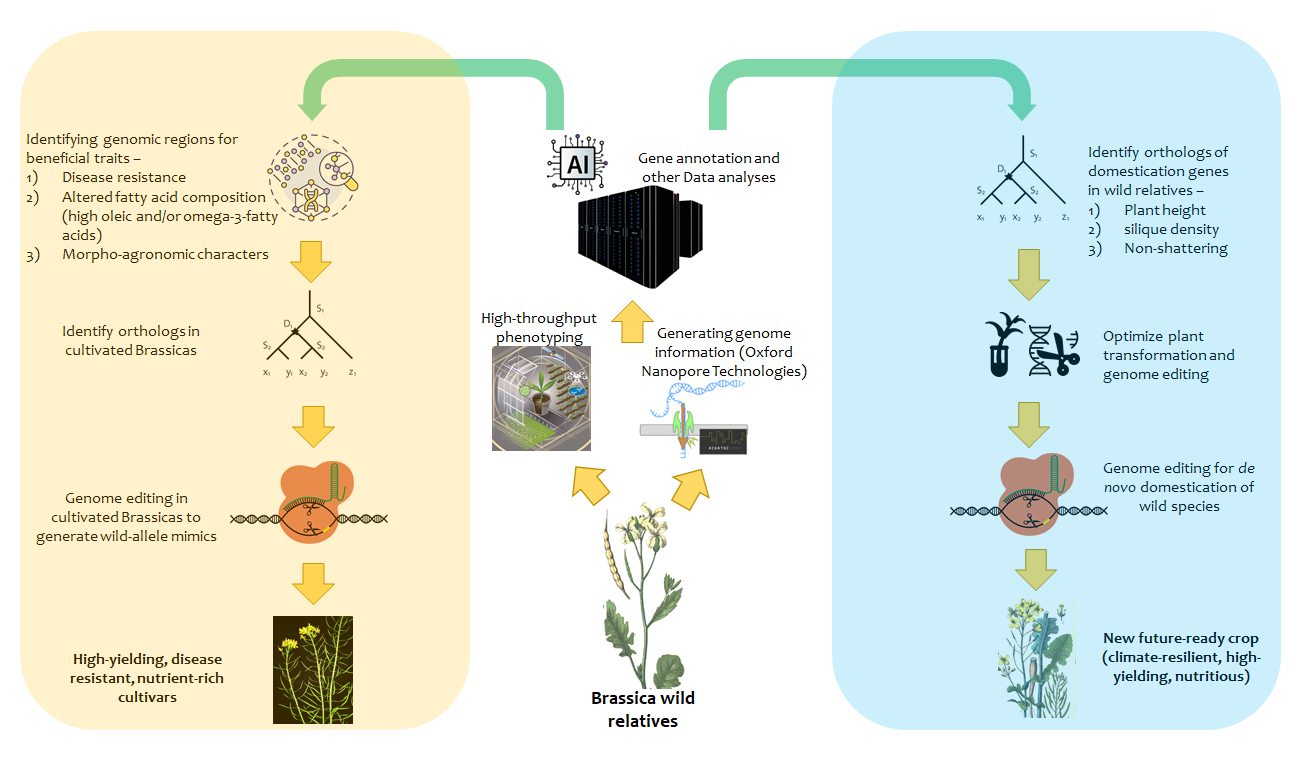Research
Growing global demands for food and forage necessitates crop improvement programmes that can address the triple challenges of higher productivity, climate resilience, and nutritional security. Effective utilization of available and novel genetic resources is a key strategy for enhanced crop improvement. Crop wild relatives (CWRs) and underutilized crops are an invaluable and untapped resource of many desirable agronomic traits. The wild relatives and underutilized crops contain a wealth of diversity for various important traits. Oilseeds of the Brassica genus are significant contributors to the total edible oil consumed worldwide, second only to soybean oil. Brassica juncea, is an important oilseed crop in Asia, while Brassica napus is mostly grown in Europe and Canada. B. juncea has a narrow genetic base and has limited variability in terms of response to various biotic and abiotic stresses. We aim to harness the genetic diversity of the Brassica CWRs and underutilized crops of the Brassica genus such as Brassica carinata for crop improvement through traditional breeding approaches or cutting-edge genome editing techniques. The Brassica CWRs would be phenotyped for various traits including but not limited to disease resistance, flowering time, and oil quality. Additionally, new genome information would be generated for interesting CWRs to carry out comparative genomics analyses. Subsequently, loci responsible for traits of interest would be mapped and identified. The candidate genes/loci thus identified would be targeted for introgression through wide hybridizations or genome editing approaches. Overall, we aim to accelerate development of improved crop varieties that are highly productive, resilient to environmental challenges, and possess enhanced nutritional value.

Highlighted

All
2024

2023

